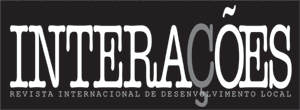Abstract
In Brazil, the COVID-19 pandemic revealed a coordination crisis with a strong federative dimension in the political-institutional sphere. This whole context brought several challenges to the usual functioning of social control, notably marked by extended meetings, on-site visits, conferences, and other face-to-face activities. Thus, this article aims to verify whether the COVID-19 pandemic affected social control based on a comparative study of users access to the Brazilian National Health System (SUS) Ombudsman in 2019 and 2020. For this purpose, secondary data was collected from the Business Intelligence Portal (Bl)- Health Information of the State of Rio Grande do Sul, State Management version. To treat the data, we sought to identify in the indicators the adequacy to the criteria contained in the matrix elaborated by the Interdisciplinary Group of Studies in Management and Public Policies, Development, Communication and Citizenship (GPDeC) of the Regional University of Northwestern Rio Grande do Sul (UNIJUÍ), social control category and its analysis criteria. As a result, there was a decrease of 5.12% in the total number of events held in 2020. Still, in the same year, there was a significant increase in the number of events pending and with a deadline for responses and a growing approach to the themes concerning Health Surveillance.
Keywords
social control; ombudsman; pandemic; public health policy

 Thumbnail
Thumbnail
 Thumbnail
Thumbnail
 Fonte:
Fonte:  Fonte:
Fonte: